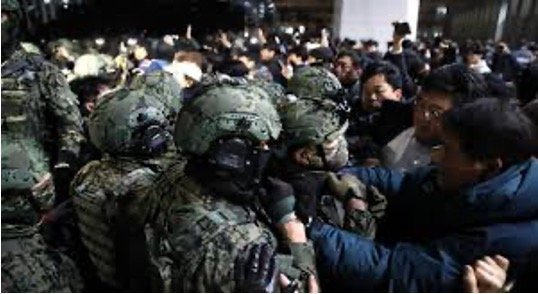South Korea stands at a historic crossroads, facing a national identity crisis following President Yoon Suk Yeol’s failed martial law attempt last December, which sparked massive unrest and exposed deep societal fractures. The upcoming snap election isn’t just about leadership—it represents a collective plea for stability and healing. Leading opposition candidate Lee Jae-myung, once a polarizing figure, now symbolizes democratic resilience. His campaign, marked by heavy security and bulletproof shields, reflects the volatile political climate where violence and threats have become disturbingly normalized. Lee’s promise to amend the constitution and prevent future martial law declarations has resonated with a population disillusioned by Yoon’s authoritarian overreach. On the other hand, the People Power Party’s (PPP) controversial decision to nominate Kim Moon-soo—Yoon’s loyal former labor minister who initially refused to apologize for the crisis—has backfired, transforming the election into a referendum on martial law itself. Kim's late apology and ties to Yoon have further weakened his appeal, though some voters reluctantly support him simply to avoid electing Lee. Despite this, Lee has successfully shifted his image, moving toward political centrism by engaging with South Korea's corporate giants and embracing U.S. alliances in foreign policy, leaving behind once-radical promises like universal basic income. Meanwhile, Kim Moon-soo’s own political journey—from a tortured pro-democracy activist to a conservative figurehead—adds complexity but not enough support to rally a divided PPP, now plagued with internal dissent. As South Koreans prepare to vote, six months after rising up against military overreach, the nation seeks more than a president—they seek justice, accountability, and a chance to rebuild trust in their democratic foundations. Whether in political rallies or shared concerns at public events like baseball games, one message is clear: the people are ready to reclaim their power and redefine their future.
- Reported by Hansika Arun
Intern at the Korean Academy
Korean news analysis and reporting


